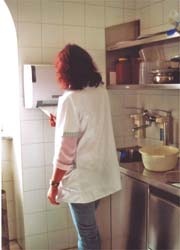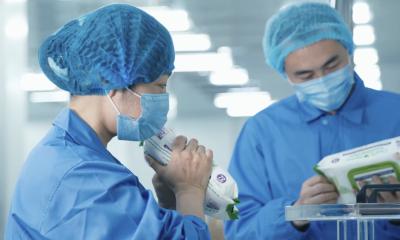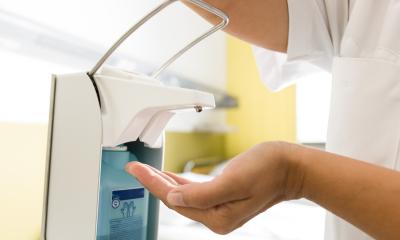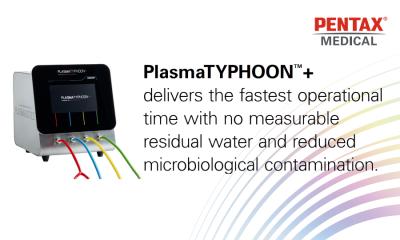Devices dedicated to efficient hand washing
The 134-bed private hospital Dr R Schindlbeck private hospital in Herrsching am Ammersee, Bavaria, which also has a large out-patient department, provides 110 units for use after hand washing by staff, patients and visitors. From the Katrin range by Metsä Tissue, Finnish producer of paper towels and dispensing systems, they consist of paper towel rolls and dispensers.

As a result, this hospital has become a test site for Metsä Tissue’s new generation of paper towel dispensers in hygiene-sensitive areas such as the ICU or dialysis, heart catheter or endoscopy departments, where hands must be washed frequently. ‘These new dispensers are designed for high-quality folded paper especially developed for hospital use,’ Metsä explains. ‘They deliver single tissues touch-free, and these automatically unfold when removed by the user.’
Dr Peter Sautner, the hospital’s Medical Director added: ‘The paper is even softer and more pleasant to the touch than before, and it soaks up moisture very quickly and thoroughly and protects the hands. Consequently, it is used more often. In addition, high absorbency ensures that in stressful clinical life, drying the hands, which is such an important aspect, is not neglected.’
The manufacturer explains that a specially developed technology, with air pockets, accounts for the softness and absorbency and also prevents easy tearing of the paper. The sheet size is sufficient to dry hands, and although only about 9g of residual moisture usually remains on wet hands after a wash, each towel can absorb 16g of moisture.
The hospital’s managing director, Robert Schindlbeck (son of the founder), had long found expenditure on paper towels to be exorbitant, particularly because other dispensers had thrown out wads of towels. ‘No one seemed to unfold the sheets,’ explained Lieselotte Lederer. ‘They’d use several towels at once. Surplus towels from a dispenser landed on the floor, and were wasted and ugly.’ This rubbish also made an extra job for the cleaners, she added.
Over the past year, the new dispensers have reduced paper towel consumption by about 50%. This not only represents cost saving, but also reduced work and a more pleasant wash rooms.
At this eco-certified hospital, technical director Helmut Grünert said that, before using the Katrin dispensers, every month three to four of those used had to be replaced because they had been either vandalised or had broken due to wear and tear. He also pointed out that the Katrin mounting device is compatible to those of many other systems, so no new holes needed to be drilled in tiled walls.
The hospital is now considering testing Metsä Tissue toilet paper dispensers, which also can be locked to prevent paper thefts.
Phone for technical and other details: +49 25 92 660
Website: www.metsatissue.com
30.10.2007





